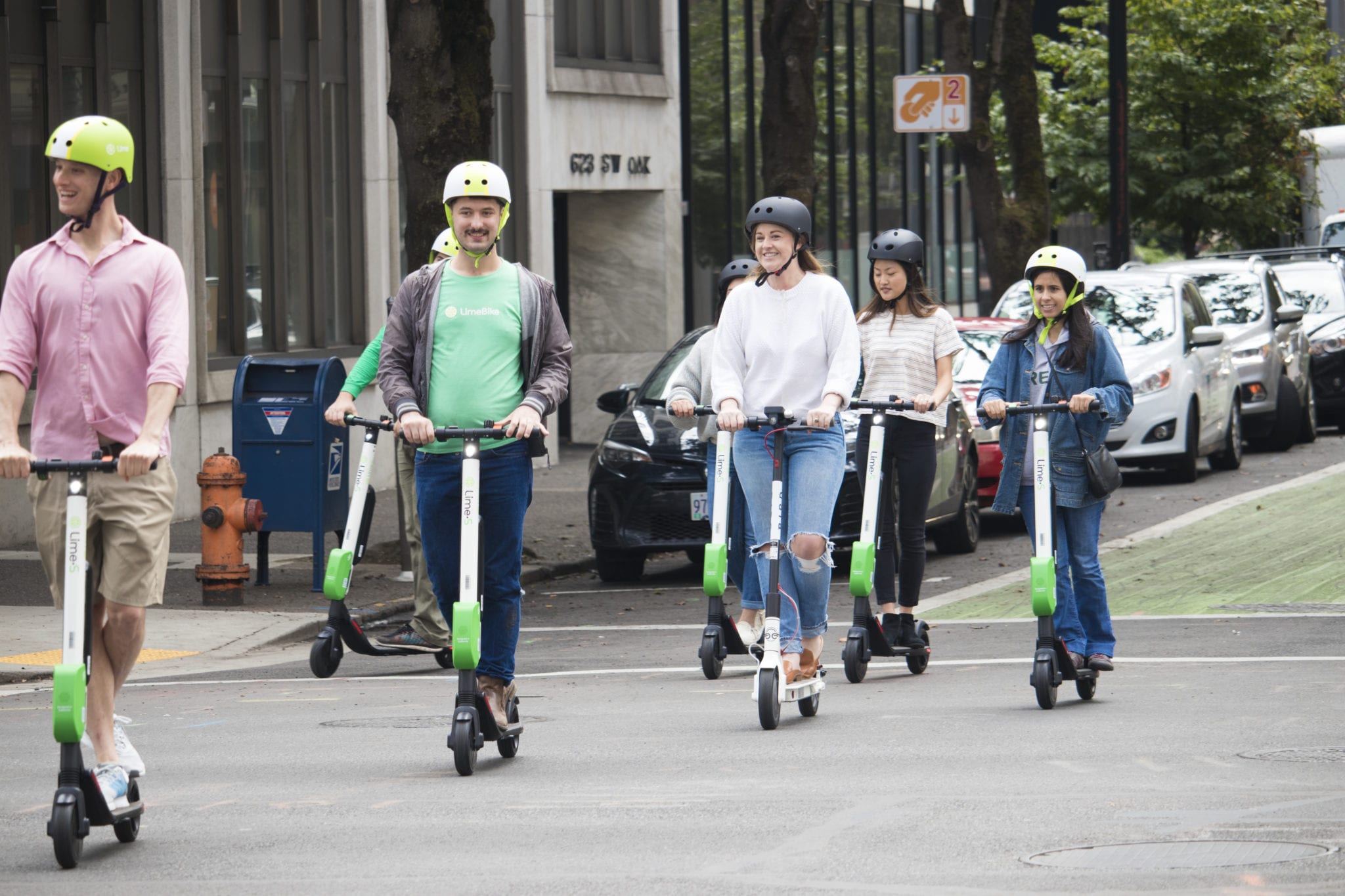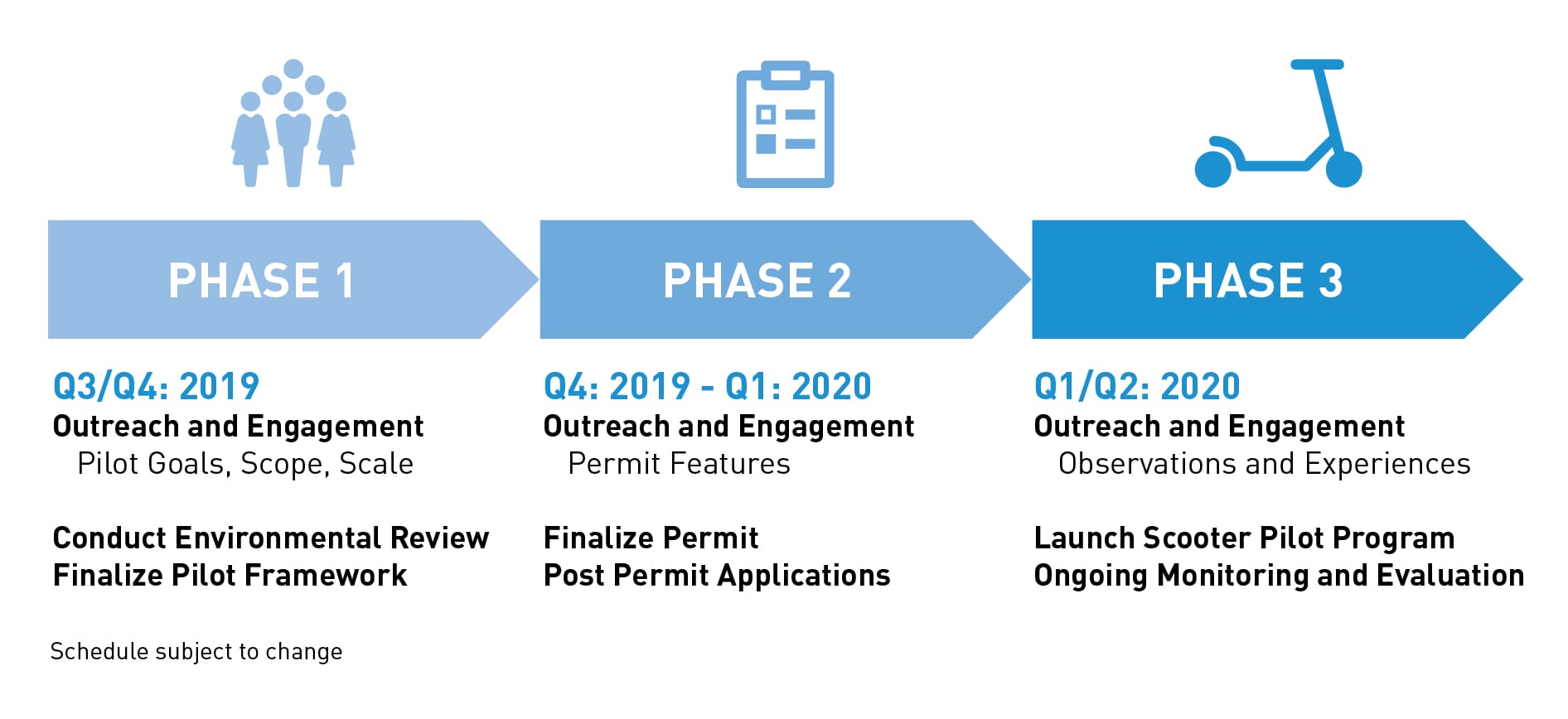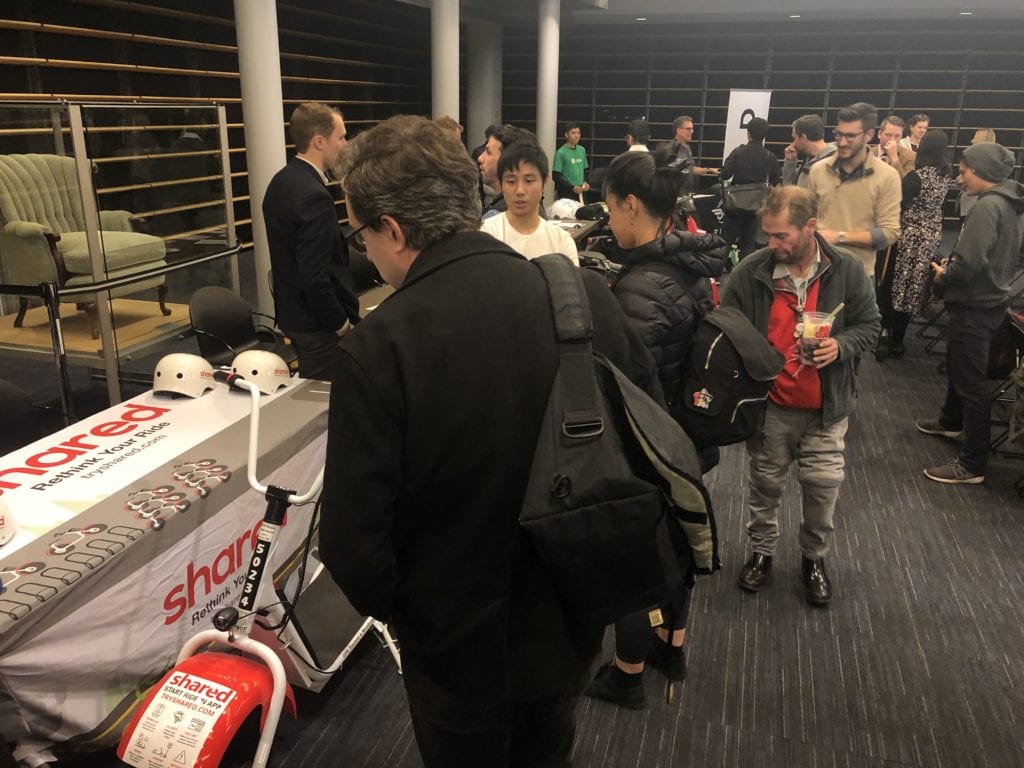
As 2019 draws to a close, we’re excited to share what we’ve done in preparation for the scooter share pilot launch coming this spring. Visit our scooter share page to find detailed summaries of our outreach and engagement efforts and pilot framing in our year end update.
Following Mayor Durkan’s announcement that scooters would be coming to Seattle, we began preparations for the pilot. Our goal is to make sure that the program works well for everyone in Seattle, so that scooter share will be safe, equitable, and not become a barrier to other people walking or rolling in our city.
Over the summer, we researched scooter share pilots and programs in peer cities, and reached out to our colleagues in Portland, San Francisco, Los Angeles, and many more across the county. We began a 3-phased approach to prepare for a spring scooter share pilot launch.
Where We’ve Been – Phase 1
Our first phase of pilot development focused on generating and evaluating ideas for the scooter program. We initiated outreach and engagement, conducted an Environmental Review, and developed a draft pilot framework that we’ll use to refine a permit.
OUTREACH AND ENGAGEMENT
Over the last several months, we worked with stakeholders and the general public to solicit ideas and understand priorities for the scooter program.
Stakeholder meetings focused on some of the key issues we know are critical to the success of the scooter share program: Riding Location, Parking, Overall Safety, Education & Enforcement, Equity & Accessibility.
Riding location and parking feedback focused primarily on pedestrian, including people with disabilities, and rider safety. Education and enforcement feedback focused on equitable enforcement and effective education. Equity and Accessibility feedback addressed equitable geographic distribution and low-income access plans.
Public feedback was gathered in surveys and via open comment. The survey asked Seattleites to rank the following factors in evaluating the success of the scooter share pilot: Safety, Rider Behavior, Connection to Transit, Replacement of Car Trips, Access to All, Positive Experience, Volume of Trips. A more detailed look at the results of stakeholder and public engagement is shared in the year end update.
ENVIRONMENTAL REVIEW
This review examined potential environmental impacts of a scooter share pilot on the public right of way, including air, water, vegetation, and other aspects of the environment. Open comments will be accepted until December 23, 2019.
PILOT FRAMEWORK
The foundation of the scooter share pilot incorporates learnings from the Phase 1 Outreach and Engagement process and is framed by the Mayor’s key objectives of creating a safe, equitable and well–managed program. The key strategies we’re thinking about deploying in our scooter pilot are summarized in the year end update.
Where We’re Going- Phase 2
We’re now underway with the second phase of our process, where we’re bringing together all the feedback we’ve received into a permit application. The conversation isn’t ending though—we’ll continue to work with stakeholder groups and neighborhoods to ensure this program reflects Seattle’s goals.
In early 2020, we will post a scooter share permit and invite companies to apply for a Spring 2020 launch. The City will evaluate and score these proposals and provide a limited number of permits to operate in the City.
We look forward to continuing our work with stakeholders in approaching the permit and welcome all public comment at scootershare@seattle.gov.


